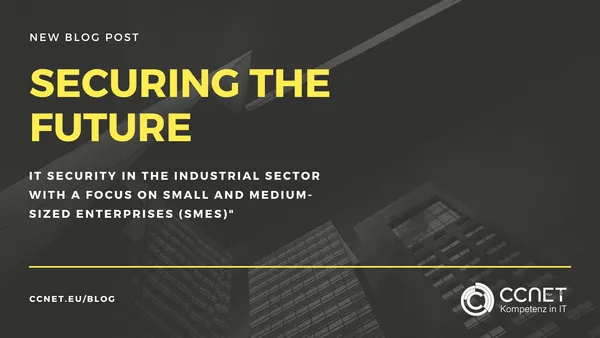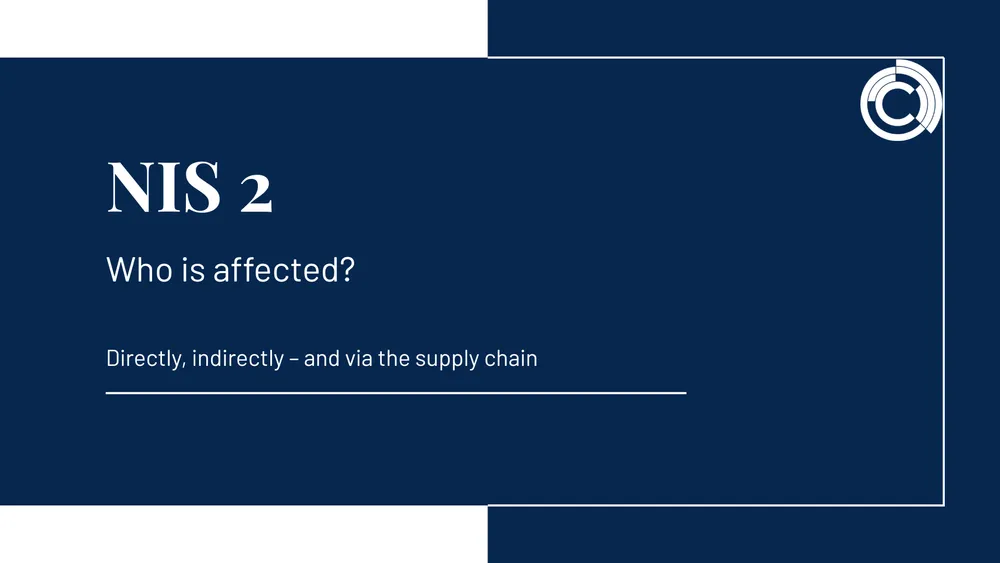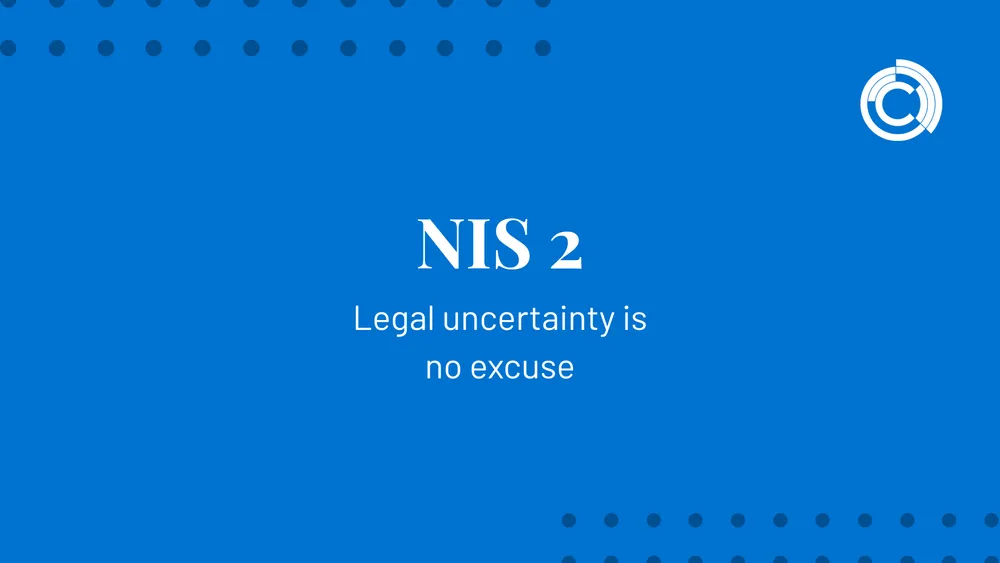
CCNet
Feb 5, 2024 • 2 min read

Securing the Future: IT Security in the Industrial Sector with a Focus on Small and Medium-Sized Enterprises (SMEs)
The Digital Challenge in the Industrial Sector
In an increasingly digital and interconnected future, IT security takes center stage in corporate strategies, especially in the industrial sector. Studies show that up to 60% of small and medium-sized industrial enterprises have experienced at least one significant cyberattack in the last two years, highlighting the need for a robust IT security strategy.
Further information can be found here: IT-Security
IT Security in the Manufacturing SMEs
For small and medium-sized enterprises in the manufacturing sector, often considered the backbone of the economy, IT security is of paramount importance. These companies are in a unique position: they are large enough to be significant targets for cyberattacks but often lack the resources that larger corporations invest in their cybersecurity measures. Interestingly, a recent study suggests that 75% of these SMEs allocate less than 10% of their IT budget to security measures.
About This Series
This blog series focuses on shedding light on the often opaque field of IT security, specifically tailored to the needs and challenges of manufacturing SMEs. We will explore the latest trends, technologies, and best practices relevant to small and medium-sized industrial enterprises, with a particular focus on Zero Trust technologies and compliance with the NIS2 guidelines.
Significance of Zero Trust and NIS2
Zero Trust technologies represent a paradigm shift in cybersecurity, while the European Union's NIS2 directive sets new standards for network and information security. Both are of great importance to SMEs in the manufacturing sector.
Importance of IT Maintenance
The maintenance and upkeep of IT infrastructure must not be neglected. High-quality IT maintenance is crucial for maintaining operational safety and efficiency and can make the difference between smooth operations and costly downtimes.
Securing the Future
Securing the IT infrastructure forms the foundation for the future resilience of small and medium-sized enterprises in the industrial sector. A holistic approach to security technologies, especially Zero Trust, along with compliance with NIS2 guidelines, paves the way for a secure and successful future.
Stay Tuned
In this series, we will delve into these topics in detail, seek expert opinions, and provide practical advice. Subscribe to our newsletter to stay updated and join us on this journey to demystify and strengthen IT security in manufacturing SMEs.
Why is Zero Trust especially important for medium-sized manufacturing companies?
Zero Trust prevents unnoticed intrusions and the spread of threats within the corporate network through strict access control and verification—a critical advantage for SMEs with limited resources.
What is the difference between traditional IT security and Zero Trust?
Traditional models rely on trust zones, while Zero Trust assumes that no user or device is inherently trustworthy—every request must be verified.
What role does the NIS2 directive play for manufacturing SMEs?
NIS2 requires companies to implement higher security standards and regular protective measures—especially in critical or economically significant sectors.
Why is IT maintenance a critical factor for cybersecurity?
Regular maintenance fixes vulnerabilities, reduces downtime, and ensures that protection systems like firewalls and antivirus software function effectively.
How much do medium-sized industrial companies currently invest in IT security?
Studies show that around 75% of businesses spend less than 10% of their IT budget on security measures—despite the growing threat landscape.
What are typical risks for manufacturing SMEs?
In addition to targeted attacks like ransomware, outdated systems, unsecured remote access, and lack of employee awareness are major threats to business security.
How can SMEs improve their IT security?
By implementing Zero Trust strategies, regular maintenance, security audits, employee training, and compliance with regulations such as NIS2, risks can be significantly reduced.


